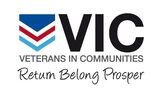VIC Peer Support
Veterans In Communities has been operating a number of peer support activities in East Lancashire and parts of Greater Manchester since 2012.
Definition
‘Peer Support may be defined as the help and support given by veterans to veterans through shared experiences and/ or an experience of a mental health illness related to their military life.
It may be social, emotional or practical support but importantly this support is mutually offered and reciprocal, allowing peers to benefit from the support whether they are giving or receiving it’.
The VIC peer support activities are delivered to the Armed Forces Community by a core team of volunteers that have either served in one of the branches of armed services or one of the emergency services. Our core team of volunteers have completed the peer support model themselves.
Our experience has shown that a veterans Peer Support programme builds trust and effective working relationships at the initial intervention stages and through the shared experiences of the VIC volunteer members whom have a good understanding of the existing statutory services and third sector organisations.
Our core team working on the Peer Support activities have many qualifications that include; Information, Advice and Guidance, Mental Health First Aid, Suicide intervention skills, PTLLS (Preparing to Teach Lifelong Learning Sector), Art Therapy, Health courses, First Aid, and some outdoor courses. Some have gone onto further education and university degrees.
A good Peer support Programme can be a very powerful and effective tool which can complement other services the veteran is getting. It is already used with lots of groups particularly with those with Mental Health conditions and with Substance Misuse recovery groups. Serving in the Armed Forces, whether as a regular or reservist, or even a family member is a unique experience as military culture is different in many ways and Peer Support can provide much to bring about a successful return to civilian life.
Research has shown that Peer Support programmes can improve psychiatric symptoms resulting in decreased hospitalisation, larger social support networks and enhanced self-esteem and social functioning. The benefits of Peer Support are wide ranging for those receiving the support, the peer-support mentors themselves, and for the mental health system as a whole.
Definition
‘Peer Support may be defined as the help and support given by veterans to veterans through shared experiences and/ or an experience of a mental health illness related to their military life.
It may be social, emotional or practical support but importantly this support is mutually offered and reciprocal, allowing peers to benefit from the support whether they are giving or receiving it’.
The VIC peer support activities are delivered to the Armed Forces Community by a core team of volunteers that have either served in one of the branches of armed services or one of the emergency services. Our core team of volunteers have completed the peer support model themselves.
Our experience has shown that a veterans Peer Support programme builds trust and effective working relationships at the initial intervention stages and through the shared experiences of the VIC volunteer members whom have a good understanding of the existing statutory services and third sector organisations.
Our core team working on the Peer Support activities have many qualifications that include; Information, Advice and Guidance, Mental Health First Aid, Suicide intervention skills, PTLLS (Preparing to Teach Lifelong Learning Sector), Art Therapy, Health courses, First Aid, and some outdoor courses. Some have gone onto further education and university degrees.
A good Peer support Programme can be a very powerful and effective tool which can complement other services the veteran is getting. It is already used with lots of groups particularly with those with Mental Health conditions and with Substance Misuse recovery groups. Serving in the Armed Forces, whether as a regular or reservist, or even a family member is a unique experience as military culture is different in many ways and Peer Support can provide much to bring about a successful return to civilian life.
Research has shown that Peer Support programmes can improve psychiatric symptoms resulting in decreased hospitalisation, larger social support networks and enhanced self-esteem and social functioning. The benefits of Peer Support are wide ranging for those receiving the support, the peer-support mentors themselves, and for the mental health system as a whole.
